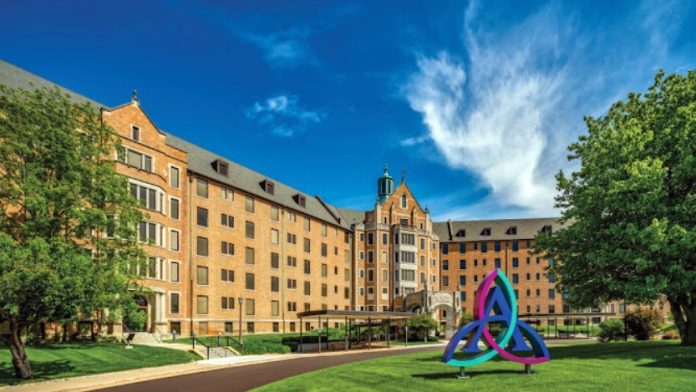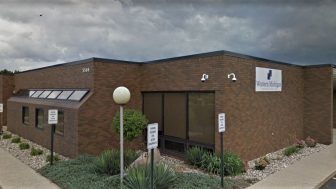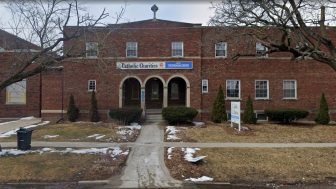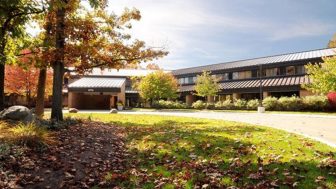Ascension Borgess Hospital Behavioral Health Inpatient Care
1521 Gull Road
Kalamazoo, MI 49048
Kalamazoo, Michigan
269-226-4858
Get Help Now - 313-572-0595
 Who Answers?
Who Answers?

Addiction Treatment Programs
Adult Program
Cognitive Behavioral Therapy (CBT)
Senior Drug & Alcohol Rehab
Teen & Adolescent Program
Adult Program
No single adult program in Michigan is right for everyone. That’s why each program is tailored to meet the needs of the individual. Common aspects to an adult rehab program include individual counseling, group therapy, and aftercare support.Cognitive Behavioral Therapy (CBT)
During cognitive behavioral therapy in Michigan, participants do more than talk with their therapists. This is an engaging, hands-on approach that requires active participation. Individuals work with their therapist to change their thought and behavior patterns to overcome addiction.Senior Drug & Alcohol Rehab
Age-specific rehab can put participants at ease because they are with their peers. Elderly rehab in Michigan provides a safe and inviting setting for seniors to get the help they need to overcome addiction.Teen & Adolescent Program
A young adult program in Michigan specializes in treatment tailored to individuals in this stage of life who are suffering from substance use disorder. Treatment addresses addiction and the challenges related to young-adult life.Levels of Care
1
Inpatient Rehab
Inpatient drug rehab in Michigan offers multiple forms of evidence-based treatments and complementary therapie...s you must particiapte in while living at the facility. Some inpatient rehabs offer nutritional counseling, recreational therapy opportunities, and meditation classes.Read More
2
Dual Diagnosis & Mental Health
A dual diagnosis treatment center in Michigan allows you to get treatment for substance abuse and mental healt...h disorders at the same time. This is critical, because untreated mental health disorders often lead to relapse and poor recovery outcomes.Read More
Insurance
 Financial Aid
Financial Aid
If you're a Michigan resident in need of financial assistance with rehab, Financial Aid may be an option. This... can help you access all levels of care, including detox, inpatient rehab, and more. Types of financial assistance options include grants, scholarships, non-profit programs, personal funding, and health insurance programs to help you manage the expense of substance abuse treatment.Read More
 Payment Plans & Financing
Payment Plans & Financing
For those who are underinsured or uninsured, paying the total cost of a rehab program up front is not feasible.... Fortunately, many alcohol and drug rehabs make financing available to potential clients through private loans, in-house payment plans, or partner lenders. You can choose a finance package that lets you start treatment immediately and pay for it later.Read More
 Medicaid Accepted
Medicaid Accepted
You may be eligible for Medicaid, which can help with the cost of alcohol and drug rehab in Michigan. Covering... all levels of care, Medical Assistance can make detox, inpatient and outpatient rehab, and other forms of addiction affordable.Read More
 Medicare Accepted
Medicare Accepted
You may be eligible for Michigan Medicare, which could cover the cost of alcohol and drug rehab in Michigan. T...he amount of coverage will depend on many things, including whether you are seeking inpatient or outpatient treatment for substance abuse.Read More
 Private Insurance
Private Insurance
If you have private insurance, you may be able to use your coverage to help cover the cost of alcohol and drug... rehab in Michigan. Your rehab insurance policy may cover a poirtion of treatment or it may cover 100% of your treatment costs..Check with your insurer for more information.Read More
 Self-Pay Options
Self-Pay Options
In Michigan, you have the option to pay for your drug or alcohol addiction treatment through self-pay options,... also known as private pay. This allows you to manage the cost of your recovery journey. All levels of care, including detox, inpatient rehab, and more, are available to you through this option without limitations of insurers or state-run programs.Read More
Contact Ascension Borgess Hospital Behavioral Health Inpatient Care

Location Details
Other Nearby Facilities

Grace Centers of Hope Mens Program
35 East Huron Street
Pontiac, MI 48342

Western Michigan Comprehensive Treatment Center in Grandville
3584 Fairlanes Avenue Southwest Suite 2
Grandville, MI 49418

Catholic Charities of Shiawassee and Genesee Counties
901 Chippewa Street
Flint, MI 48503

Henry Ford Maplegrove Center
6773 West Maple Road
West Bloomfield, MI 48322